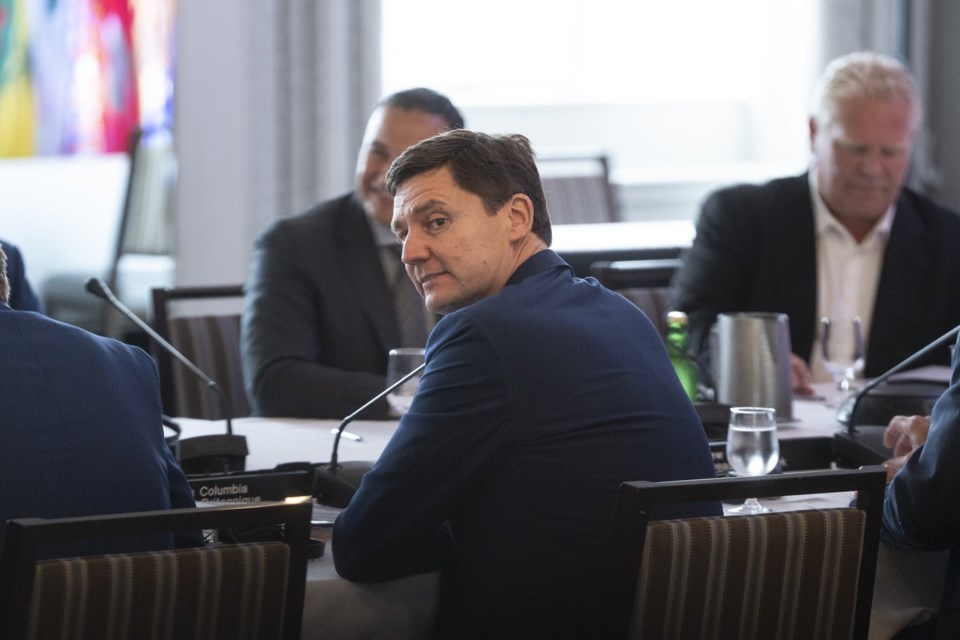HALIFAX — British Columbia is providing "full support" to Newfoundland and Labrador's court challenge over federal equalization payments, while it considers its own claim to ensure fair treatment from Ottawa, Premier David Eby said Wednesday.
Eby said there are differences in the legal arguments B.C. would make, but the two provinces are united in the goal of reversing what he described as "perverse outcomes" from the equalization program.
Eby said his New Democrat government will intervene in Newfoundland's case "at the appropriate moment," and B.C. officials will share information to support the legal claim at the trial level while co-ordinating on strategy in court.
The premier said his government will also look at whether the province should file its own legal claim in B.C. over Ottawa's handling of the equalization program.
He told a news conference in Halifax that a review of the program is supposed to happen every five years, but the federal government made an "explicit decision" not to sit down with premiers to renegotiate the equalization formula to address their concerns.
"Instead of doing that review at the five-year mark, they decided to just roll it over, without that conversation that we needed to have," he said.
Eby said the constitution is clear that equalization is meant to ensure a basic level of services for all Canadians, but provinces such as Ontario have received federal funds and B.C. has seen nothing in recent years while it struggles to deliver services.
"We feel that it's unreasonable for B.C. taxpayers to be sending money to the federal government to be distributed to provinces like Ontario," he said Wednesday.
The federal Finance Department said in a statement that British Columbia has no better partner than the federal government.
"We have a strong track record of working collaboratively with Premier Eby and his government to ensure fairness for all British Columbians," said Navpreet Chhatwal, a communications advisor with the department.
Chhatwal said the federal government regularly speaks with its provincial and territorial counterparts about equalization.
It said the formula was most recently reviewed this year and the next review will be 2029.
Newfoundland and Labrador Premier Andrew Furey joined Eby at the news conference, saying the equalization formula is supposed to consider both taxation and services, but the current structure does not reflect the services side of the equation.
"There should be protection for equivalence of services across the country. But there is no proxy for that in the current contemplation," he said.
"We're very grateful that Premier Eby has joined our fight to make sure that this formula is revisited."
Both Eby and Furey said it's Ottawa's responsibility to ensure equalization fairness, shifting blame away from their counterparts in Ontario and Quebec.
"I don't have any particular issue with Quebec's entitlement, I don't have any issue with people in (Prince Edward Island) getting money," Furey said.
"That's not the question. The question from us is, is this formula being adequately and fairly and justly applied to all Canadians, regardless of where you live."
Eby said B.C. is "reluctant" to take the step of a legal challenge. Provincial officials have built relationships in Ottawa, and "there's no question the federal government understands our frustrations, our concerns, our anxieties," he said.
But he said direct communications with Prime Minister Justin Trudeau and federal ministers have "not mattered" when it comes to moving the needle on equalization.
"It's obvious that political considerations are blocking the ability of the federal government to prioritize the needs of British Columbians … and if politics are in the way and we're not able to get there because of politics, then we have to go to court."
This report by The Canadian Press was first published July 17, 2024.
The Canadian Press




